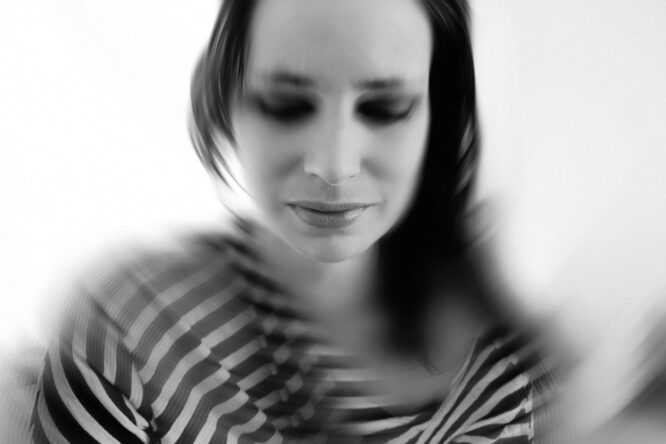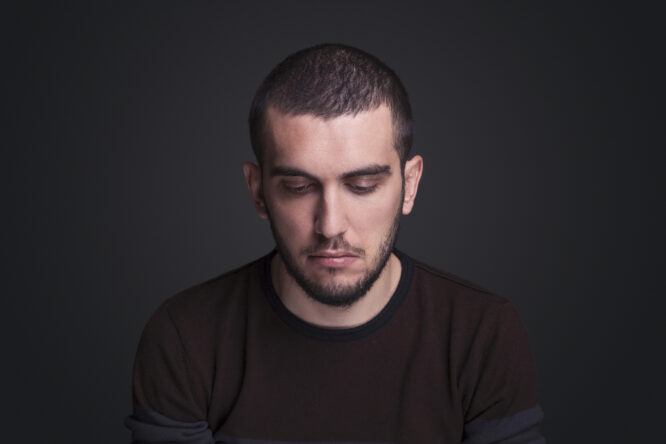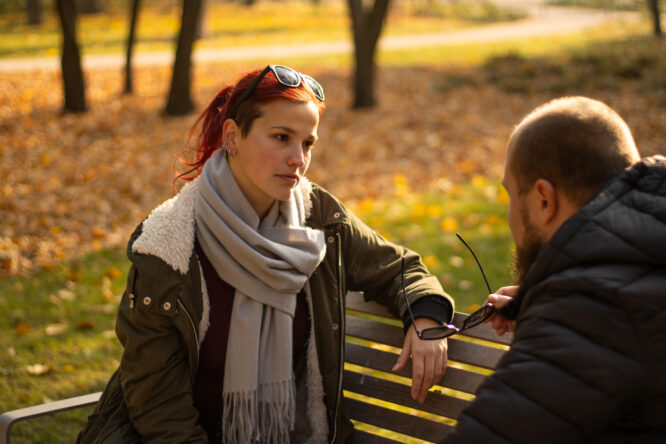When you’re an empath who also struggles with anxiety, life gets pretty intense—talk about an emotional double whammy!

You’re not just feeling everything deeply—you’re worrying about everything, too. It’s a heavy combo most people don’t really understand. While it’s great to be so intensely connected to your own emotions and everyone else’s, too, it can quickly become pretty overwhelming and downright paralysing at times. The struggles are real, that’s for sure.
1. Other people’s moods don’t just affect you—they take over.

If someone around you is stressed, upset, or tense, it’s almost like your body thinks it’s happening to you. You don’t get to observe it from a distance; it jumps right into your nervous system without asking. Even if you walked in feeling fine, someone else’s bad day can completely flip your own mood. You might not even realise it’s not your emotion at first—it just hits, and suddenly, everything feels heavy and off.
2. You feel bad for needing space, even when you’re running on empty.

You know you need breaks. You know your brain and heart need quiet. However, the second you try to pull back, you start worrying someone’s going to feel rejected or take it personally. That makes it way harder to actually rest. You’re caught between knowing what you need and feeling selfish for needing it. So instead of recharging, you stay in the noise—tired, anxious, and resentful without meaning to be.
3. You overanalyse even the good conversations.

Someone can be kind and everything can go smoothly—and yet, hours later, your mind is still going over what you said, how you said it, and whether they secretly thought you were weird. Because you’re so tuned in to other people’s reactions, every little facial twitch or pause becomes a potential sign of trouble. Your anxiety fills in the blanks, and before long, you’re convinced you messed up something that was actually fine.
4. You try to take care of everyone, even when you’re struggling yourself.

Helping comes naturally to you—you feel other people’s emotions so strongly, it’s almost impossible not to step in. However, when your own mental state is already shaky, it takes a real toll. You end up being everyone’s emotional backup without having any left for yourself. It’s hard to let go of that feeling of responsibility, even when you know deep down that you’re running on fumes.
5. You feel responsible for things that aren’t even yours to carry.

If someone’s upset, your brain immediately starts scanning for how it might be your fault. Even if you’ve done nothing wrong, your mind builds a whole case about how you might have made it worse. It’s a constant loop of second-guessing. You carry guilt that doesn’t belong to you, and you often apologise for things no one even noticed—just to ease that awful feeling of “I must’ve done something wrong.”
6. You’re scared of being too much, or not enough.

Your emotions run deep, but your anxiety tells you to hide them. You worry that being open will make you look dramatic or overly sensitive, so you stuff everything down instead. Then comes the other side: you start worrying you’re not expressing enough, not connecting enough, or not being the “right” kind of person for the people you care about. It’s a never-ending cycle of doubting yourself either way.
7. You pick up on tiny changes in energy and can’t stop reacting to them.

If someone’s vibe changes even slightly, you notice. Maybe they’re quieter than usual, or their tone feels off, and your whole body reacts before they even say a word. Your anxiety doesn’t wait to confirm whether it’s actually about you. It just assumes something’s wrong and kicks into high alert, trying to figure out what happened and how to fix it, even if there’s nothing to fix.
8. You can’t always tell which feelings are yours and which aren’t.

Sometimes your mood suddenly dips and you don’t know why. Then you realise you’ve been sitting next to someone who’s sad, frustrated, or stressed, and it’s rubbed off on you completely. It’s hard to sort through your own anxiety when you’re also carrying emotions that don’t even belong to you. You end up feeling heavier than necessary, with no real way to explain it.
9. You worry about being annoying even when you’re being helpful.

You’re kind, supportive, and intuitive, but your anxiety still convinces you that people might find you clingy, intense, or irritating. Even when you’re clearly being thoughtful, you second-guess yourself. This leaves you stuck between wanting to be there for other people and wanting to disappear so you don’t accidentally overwhelm them. You never really feel like you can just be—there’s always some low-level fear of rejection humming in the background.
10. You talk yourself out of asking for help because you don’t want to be a burden.

You sense when other people are tired, overwhelmed, or low on energy, and that awareness stops you from opening up, even when you really need support. You’d rather hold it in than risk making someone else feel worse. So you end up carrying everything alone. You wait for someone to notice, hoping they’ll ask how you’re doing without you having to bring it up first. When they don’t, it confirms your fear that your feelings are “too much.”
11. You crave reassurance but feel awkward actually asking for it.

You want to hear that you’re okay, that you’re not overthinking things, that you didn’t mess up, but asking for that reassurance feels exposing. You don’t want to seem needy, so you just keep it all inside. Meanwhile, your mind is spinning with what-ifs and worst-case scenarios. You try to act chill, but underneath it all, you’re hoping someone will say exactly what you need to hear without you having to ask.
12. You get emotionally overloaded in crowds and group settings.

When you’re around lots of people, it’s not just noise—it’s emotion after emotion coming at you from every direction. You absorb it without meaning to, and before long, your brain feels like it’s short-circuiting. Even if the vibe is mostly positive, it’s still a lot. And when there’s tension or conflict in the air? Forget it. You end up totally drained and overstimulated, even if nothing “bad” technically happened.
13. You replay old conversations and feel every cringey moment all over again.

Your brain loves to hit replay on that one awkward thing you said or that one time someone seemed slightly annoyed. It’s not just a memory; it’s a full-on emotional flashback. You feel it in your chest, your stomach, your whole body. You know you’re probably overthinking it, but that doesn’t stop the feelings from coming back like it just happened five minutes ago.
14. You’re wired for calm, but constantly stuck in overdrive.

Deep down, you crave peace—quiet energy, emotional safety, all of it. But your anxiety keeps you on high alert, always watching for signs that something might go wrong or someone might be upset. This creates a weird inner tension. Part of you wants to slow down and just exist. The other part won’t let you rest. It’s like your nervous system forgot how to feel safe, even when everything around you is technically fine.




